There is absolutely NOTHING good about ticks.
They’re gross little creepy-crawly bloodsucking bugs that have the potential to transmit some seriously scary diseases, including Lyme disease which, as you probably know, is all over the Northeast.
Actually, it’s so bad here that Massachusetts officially declared it an epidemic in 2005. Last year, ticks were so bad that Boston 25 News called it a “tick explosion.” There are other terrible tick-borne diseases here, though, that aren’t Lyme. Things like Babesiosis, that is dangerous to both humans and dogs, and the very scary Powassan virus, which is on the rise.
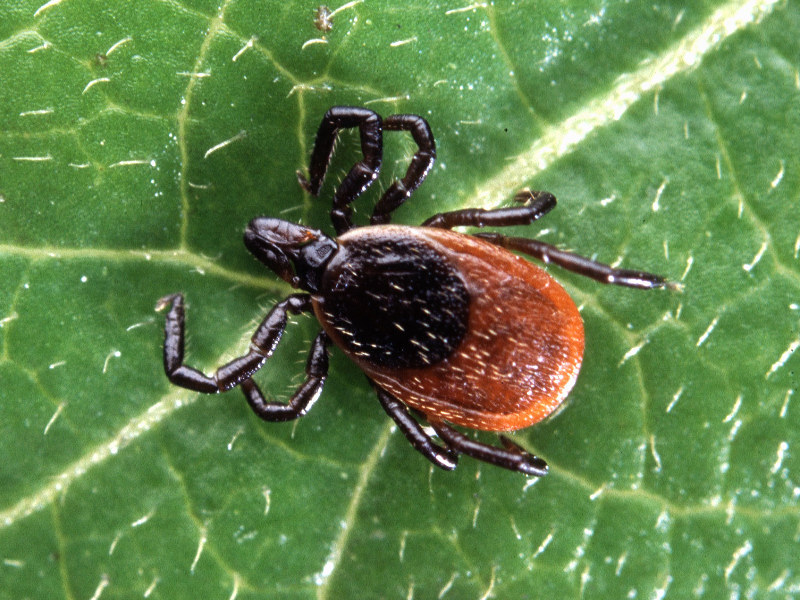
In fact, in May 2018 the CDC released a report stating that diseases from mosquitoes and ticks have more than tripled in the United States since 2004, and unfortunately that rate does not appear to be slowing down. Further, the CDC also outright states that 80% of government vector-control organizations are not prepared to deal with this new onslaught of vector-borne diseases. All one has to do is go to the City of Marlborough’s website and do a search for “ticks” and it’ll yield little more than a PDF document, and Mass.gov just offers basic info, which is informational, but on the whole, not proactive in protecting you or your family.
Fortunately, reputable mosquito control professionals pick up the slack where the government falls behind, and with a barrier treatment spray, you’re protected from both mosquitoes and ticks in your yard by nearly 90% for up to 21 days at a time. But if it’s specifically tick protection that you’re looking for, professional Marlborough MA tick control goes above and beyond the standard barrier treatment to make sure ticks in every stage of life are eliminated. Your tick control company will take a two step approach, and enlist the help of some furry friends.
Step one in professional Marlborough MA tick control
 Beginning with the same process as a traditional mosquito barrier treatment, treating the perimeter of your yard with an EPA-registered formula on all surfaces except flowers, and work their way inward. They treat bushes, trees, the undersides of leaves, woodpiles, on and under decks . . . basically everywhere. If you have any tall, grassy areas in your yard, they’ll give those special attention, because that’s prime tick territory. It’s where they’re most likely to be found, resting, breeding, and waiting to hitch a ride on their next blood meal. It’s your tick control expert’s job to make sure that’s not you or your loved ones, two legs or four.
Beginning with the same process as a traditional mosquito barrier treatment, treating the perimeter of your yard with an EPA-registered formula on all surfaces except flowers, and work their way inward. They treat bushes, trees, the undersides of leaves, woodpiles, on and under decks . . . basically everywhere. If you have any tall, grassy areas in your yard, they’ll give those special attention, because that’s prime tick territory. It’s where they’re most likely to be found, resting, breeding, and waiting to hitch a ride on their next blood meal. It’s your tick control expert’s job to make sure that’s not you or your loved ones, two legs or four.
Since barrier spray formulas are micro encapsulated and therefore time-released, you’ll be protected from ticks (and mosquitoes, and other biting bugs) for up to 21 days. And since it adheres to everything it’s applied to, it prevents existing tick eggs from hatching, thus stopping the life cycle. Just like a mosquito barrier treatment, recommended reapplication is every three weeks for maximum efficiency.
But then there’s the “the bonus round.”
Phase Two of great Marlborough MA tick control — a.k.a. “the bonus round”
 If you do your research online, you’ll find that other outdoor pest control companies stop at a spray when it comes to ticks. Reputable tick control companies take it a step further and use the help of the common field mouse, who is a cute, innocent, and very stealthy “helper” in the fight against ticks. Contrary to their name, “deer ticks” actually pick up things like Lyme disease not from deer, but most often from mice, bunnies, and other small critters who call your and your neighbors’ yards home. This usually happens when ticks are in their larva or nymph stage of life. So tick control technicians will strategically place these small, biodegradable tubes called “tick tubes” in places they frequent.
If you do your research online, you’ll find that other outdoor pest control companies stop at a spray when it comes to ticks. Reputable tick control companies take it a step further and use the help of the common field mouse, who is a cute, innocent, and very stealthy “helper” in the fight against ticks. Contrary to their name, “deer ticks” actually pick up things like Lyme disease not from deer, but most often from mice, bunnies, and other small critters who call your and your neighbors’ yards home. This usually happens when ticks are in their larva or nymph stage of life. So tick control technicians will strategically place these small, biodegradable tubes called “tick tubes” in places they frequent.
Tick tubes are stuffed with cotton that is treated with a mild insecticide called permethrin, which is harmless to the small animals but lethal to ticks. The idea is (and this works impressively well) that the mice or other small mammal finds this cotton and bring it back to their nest to cozy it up. In doing so, the permethrin rubs off on their fur, and when a young tick attempts to get its blood meal from one of these animals, it encounters the chemical and is eliminated shortly thereafter. This “straight to the source” approach allows tick control professionals to get rid of ticks in all stages of life and thus, halt their life cycle in your yard, ensuring 90% or more tick elimination overall.
If you prefer to stay as “green” as possible. . .
 Tick control professionals also offer an all-natural solution. While all reputable tick control companies’ products are EPA-registered, there are some people that won’t settle for anything less than 100% “green.” That’s why Marlborough MA tick control professionals also offer an all-natural barrier treatment solution for your unwanted pests.
Tick control professionals also offer an all-natural solution. While all reputable tick control companies’ products are EPA-registered, there are some people that won’t settle for anything less than 100% “green.” That’s why Marlborough MA tick control professionals also offer an all-natural barrier treatment solution for your unwanted pests.
Based on natural oils, this more “crunchy” approach focuses more on repelling these little nuisances than eliminating them. It’s not quite as effective as a traditional mosquito and tick control solution, but it’s pretty darn close — most homeowners notice a reduction in yard pests between 65-80%. Also time-released, this application is recommended to be repeated every two weeks, instead of the traditional three.


 It stands to reason that this study will reveal a higher amount of tick-borne illnesses in the U.S. during the COVID-19 crisis. While the medical community works to control, cure, and prevent the spread of COVID-19, we must remember that tick-borne illnesses have been an ongoing battle in Central Mass for decades.
It stands to reason that this study will reveal a higher amount of tick-borne illnesses in the U.S. during the COVID-19 crisis. While the medical community works to control, cure, and prevent the spread of COVID-19, we must remember that tick-borne illnesses have been an ongoing battle in Central Mass for decades. Our neighbors to the north are facing a difficult decision about controlling the
Our neighbors to the north are facing a difficult decision about controlling the 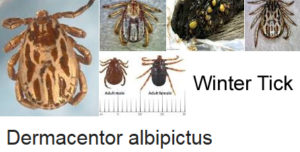 Winter ticks are not vectors for serious disease, but that doesn’t mean they are not deadly. Winter ticks hatch in the fall, and begin questing for their host. In Vermont, their main host is the moose. Once they attach for their blood meal, they remain on the host through the nymph and adult stages. As adults, they mate. The females drop the ground to lay their eggs at the end of winter, and then die. The issue is, the amount of ticks that are attaching to the moose population is enormous. Less than half of new moose calves are surviving, due to blood loss, and birth rates have fallen. One adult moose was found to host
Winter ticks are not vectors for serious disease, but that doesn’t mean they are not deadly. Winter ticks hatch in the fall, and begin questing for their host. In Vermont, their main host is the moose. Once they attach for their blood meal, they remain on the host through the nymph and adult stages. As adults, they mate. The females drop the ground to lay their eggs at the end of winter, and then die. The issue is, the amount of ticks that are attaching to the moose population is enormous. Less than half of new moose calves are surviving, due to blood loss, and birth rates have fallen. One adult moose was found to host 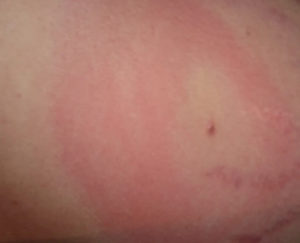

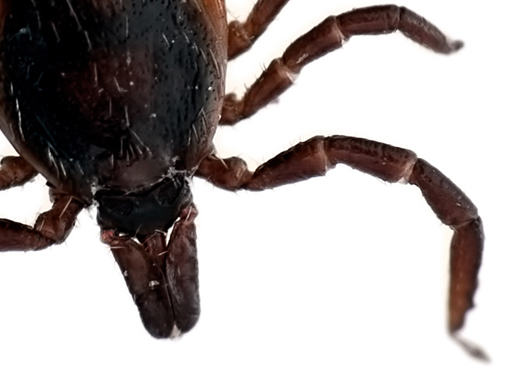


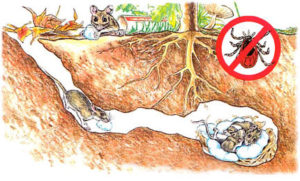 While it’s true that not all ticks are carriers of scary diseases, the only way to know which ones are and aren’t carriers is after you’re bitten, and then you wait to see if you get any symptoms. Why take that gamble at all? That’s why tick control professionals prefer to err on the safe side and use a proactive approach in the tactic of
While it’s true that not all ticks are carriers of scary diseases, the only way to know which ones are and aren’t carriers is after you’re bitten, and then you wait to see if you get any symptoms. Why take that gamble at all? That’s why tick control professionals prefer to err on the safe side and use a proactive approach in the tactic of  Professional tick protection products are EPA registered, but I understand there are some people who want to be as eco-friendly as possible. Not a problem. Reputable tick control companies have specially developed
Professional tick protection products are EPA registered, but I understand there are some people who want to be as eco-friendly as possible. Not a problem. Reputable tick control companies have specially developed 


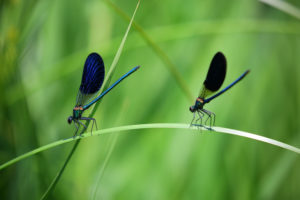 Aside from burning insects out of house and home, wildfires can have a several other effects on populations. For instance, insects, which feed on certain vegetation will see a decline in their food sources. On the flip side, flies, which by nature work to decompose animals and vegetation, will see short-term benefits after the fires. Ash debris and loss of forest shade over streams will have a negative affect on near-water-dwelling insects, such as mayflies. Areas of streams that are open to sunlight will lose their healthy levels of humidity required for stream ecology.
Aside from burning insects out of house and home, wildfires can have a several other effects on populations. For instance, insects, which feed on certain vegetation will see a decline in their food sources. On the flip side, flies, which by nature work to decompose animals and vegetation, will see short-term benefits after the fires. Ash debris and loss of forest shade over streams will have a negative affect on near-water-dwelling insects, such as mayflies. Areas of streams that are open to sunlight will lose their healthy levels of humidity required for stream ecology.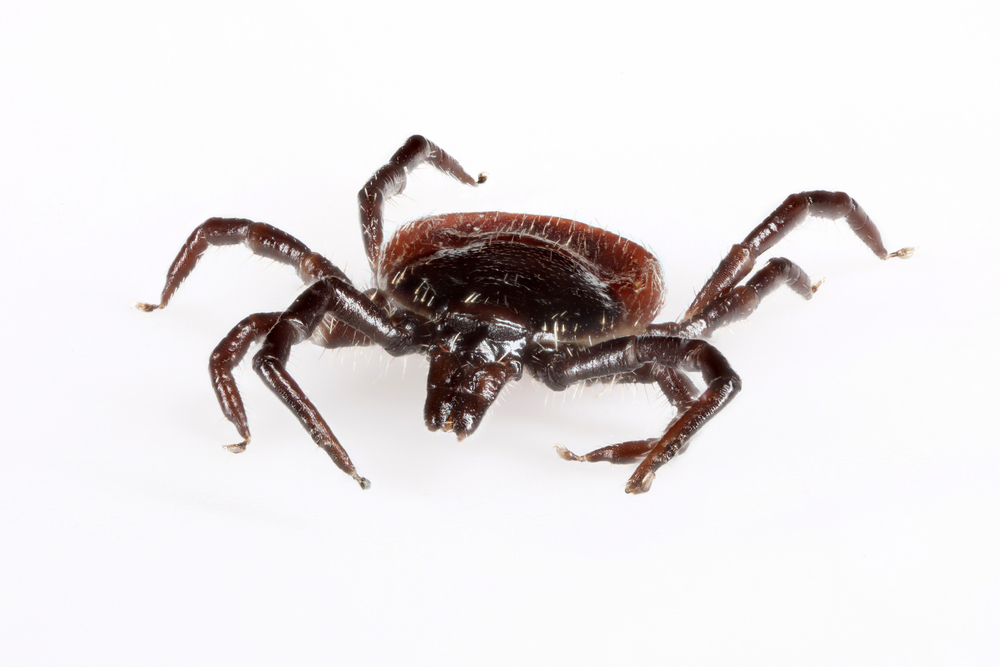

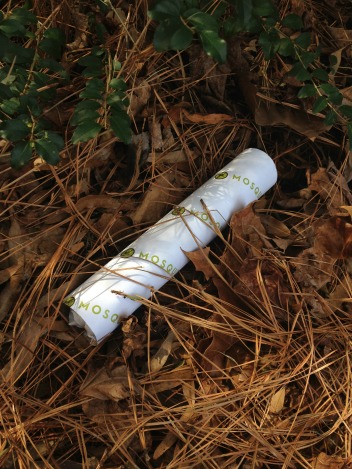 These are small, biodegradable tubes that are stuffed with cotton treated with
These are small, biodegradable tubes that are stuffed with cotton treated with  Reputable tick control products are EPA-registered, but I understand that there are some people who won’t settle for anything less than 100% natural. That’s why tick control companies have developed an
Reputable tick control products are EPA-registered, but I understand that there are some people who won’t settle for anything less than 100% natural. That’s why tick control companies have developed an 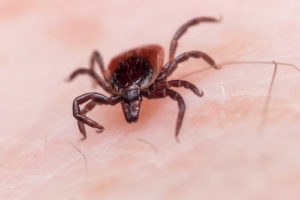 Unfortunately, there are many other scary tick-borne illnesses that we need to watch out for, including
Unfortunately, there are many other scary tick-borne illnesses that we need to watch out for, including  Not only does professional barrier tick protection help eliminate up to 90% of mosquitoes with a specially formulated
Not only does professional barrier tick protection help eliminate up to 90% of mosquitoes with a specially formulated  Following the
Following the  This is what I call our “going straight to the source” strategy. Babesiosis, Lyme disease, and other tick-borne illnesses are transmitted by deer ticks and others, and no, not all ticks are carriers. But you don’t really know if you’ve been bitten by an infected tick until it happens and you become ill. Is that a gamble anyone really wants to take?
This is what I call our “going straight to the source” strategy. Babesiosis, Lyme disease, and other tick-borne illnesses are transmitted by deer ticks and others, and no, not all ticks are carriers. But you don’t really know if you’ve been bitten by an infected tick until it happens and you become ill. Is that a gamble anyone really wants to take? While professional tick control products are EPA registered, I know that some people prefer to be as eco-conscious and “green” as possible. That’s why tick control companies have developed special, all-natural barrier treatment formulas, based on essential oils. It acts more like a repellant than an eliminator, basically “chasing” these little buggers out of your yard. Also a time-released formula, I recommend re-treating with an all-natural solution ever two weeks. How effective is it? Pretty darn good. Most customers notice a reduction in yard pests anywhere between 65-80%
While professional tick control products are EPA registered, I know that some people prefer to be as eco-conscious and “green” as possible. That’s why tick control companies have developed special, all-natural barrier treatment formulas, based on essential oils. It acts more like a repellant than an eliminator, basically “chasing” these little buggers out of your yard. Also a time-released formula, I recommend re-treating with an all-natural solution ever two weeks. How effective is it? Pretty darn good. Most customers notice a reduction in yard pests anywhere between 65-80%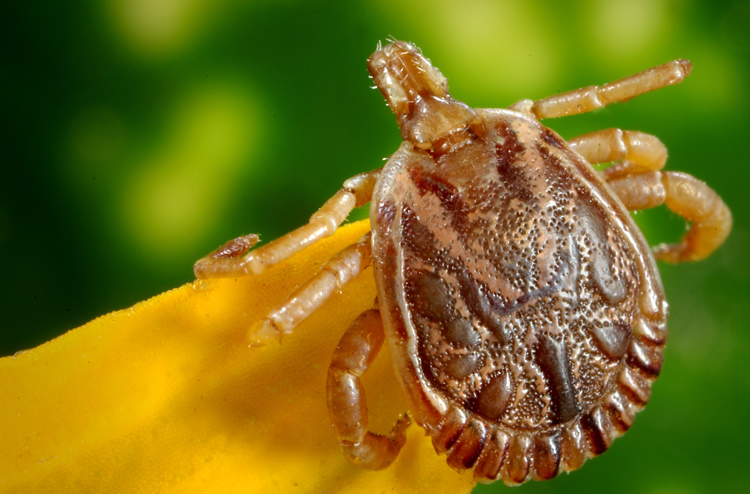
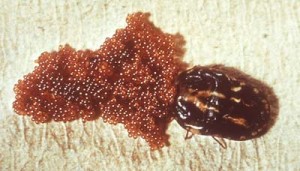

 Beginning with the same process as a
Beginning with the same process as a  If you do your research online, you’ll find that other outdoor pest control companies stop at a spray when it comes to ticks. Reputable tick control companies take it a step further and use the help of the common field mouse, who is a cute, innocent, and very stealthy “helper” in the fight against ticks. Contrary to their name, “deer ticks” actually pick up things like Lyme disease not from deer, but most often from mice, bunnies, and other small critters who call your and your neighbors’ yards home. This usually happens when ticks are in their larva or nymph stage of life. So tick control technicians will strategically place these small, biodegradable tubes called “
If you do your research online, you’ll find that other outdoor pest control companies stop at a spray when it comes to ticks. Reputable tick control companies take it a step further and use the help of the common field mouse, who is a cute, innocent, and very stealthy “helper” in the fight against ticks. Contrary to their name, “deer ticks” actually pick up things like Lyme disease not from deer, but most often from mice, bunnies, and other small critters who call your and your neighbors’ yards home. This usually happens when ticks are in their larva or nymph stage of life. So tick control technicians will strategically place these small, biodegradable tubes called “ Tick control professionals also offer an all-natural solution. While all reputable tick control companies’ products are EPA-registered, there are some people that won’t settle for anything less than 100% “green.” That’s why Marlborough MA tick control professionals also offer an
Tick control professionals also offer an all-natural solution. While all reputable tick control companies’ products are EPA-registered, there are some people that won’t settle for anything less than 100% “green.” That’s why Marlborough MA tick control professionals also offer an 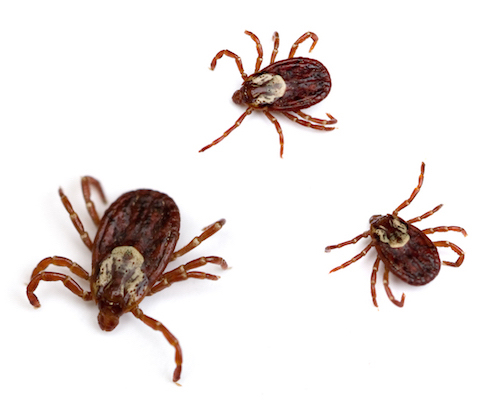

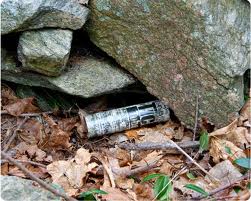 Lyme Disease and
Lyme Disease and  Not a problem. Reputable tick control companies also offer an all-natural barrier treatment. Professional tick control products are EPA registered, but I understand there are some people who want to be as eco-friendly as possible. Tick control experts have developed
Not a problem. Reputable tick control companies also offer an all-natural barrier treatment. Professional tick control products are EPA registered, but I understand there are some people who want to be as eco-friendly as possible. Tick control experts have developed